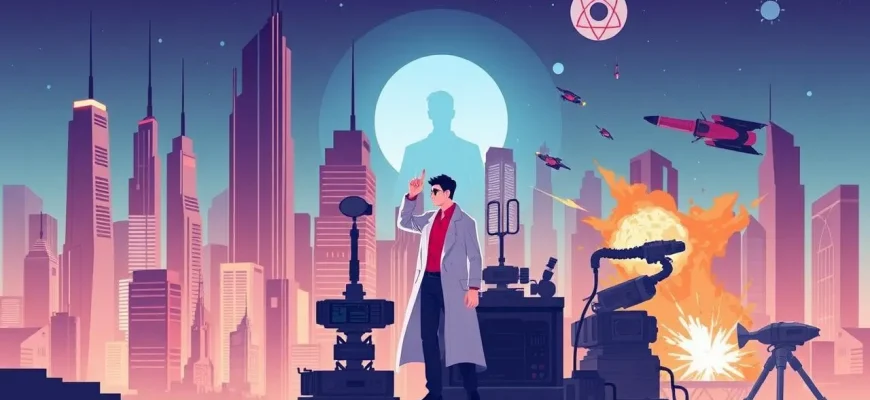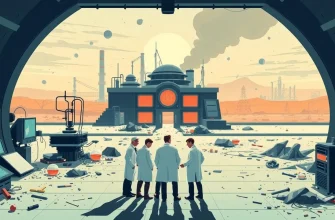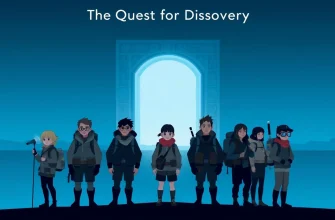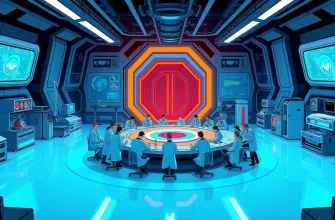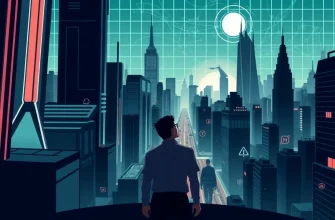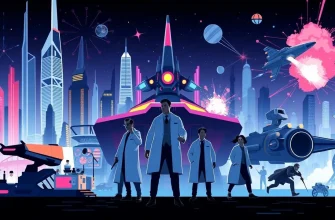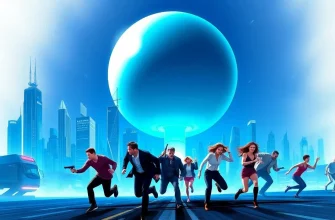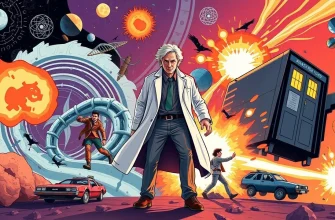Dive into a world where science and ethics collide in these thrilling sci-fi action films. Each movie in this collection not only entertains with high-octane action but also challenges viewers to ponder the moral implications of scientific advancements. From genetic engineering to artificial intelligence, these films offer a unique blend of adrenaline-pumping sequences and thought-provoking narratives, making them perfect for those who love both action and ethical debates.
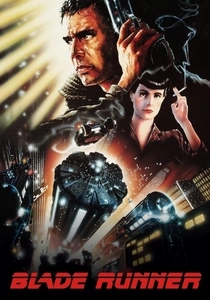
Blade Runner (1982)
Description: In a dystopian future, a "blade runner" must hunt down bioengineered beings known as replicants. The film questions what it means to be human and the ethics of creating life for servitude.
Fact: The film's director, Ridley Scott, was influenced by Philip K. Dick's novel "Do Androids Dream of Electric Sheep?" and the movie's visual style has inspired countless sci-fi films.
 Watch Now
Watch Now 
Gattaca (1997)
Description: In a future where genetic engineering determines one's social status, Vincent Freeman, a naturally conceived man, assumes the identity of a genetically superior individual to pursue his dream of space travel. This film explores themes of genetic discrimination and the ethics of human enhancement.
Fact: The film's title is based on the letters that make up the components of DNA: guanine, adenine, thymine, and cytosine. The movie was shot in sequence to help the actors portray the emotional journey of their characters.
 Watch Now
Watch Now 
The Matrix (1999)
Description: Thomas Anderson, a hacker known as Neo, discovers that the world he knows is actually a simulated reality created by sentient machines to subdue the human population. The film raises questions about reality, free will, and the ethics of control.
Fact: The idea for "The Matrix" was inspired by a short story by William Gibson, and the film's visual effects were groundbreaking, winning four Academy Awards.
 Watch Now
Watch Now 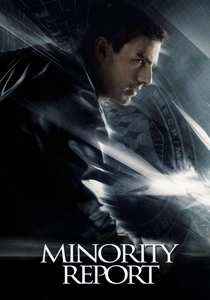
Minority Report (2002)
Description: In a future where crimes can be predicted before they happen, a chief of police is accused of a future murder. The film explores the ethics of pre-crime and the potential for misuse of predictive technology.
Fact: The film was based on a short story by Philip K. Dick, and Steven Spielberg used advanced technology to create the futuristic setting.
 Watch Now
Watch Now 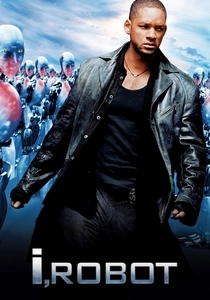
I, Robot (2004)
Description: In 2035, a technophobic cop investigates a crime that may have been perpetrated by a robot, which leads him to uncover a larger threat to humanity. This film explores the Three Laws of Robotics and the ethical implications of AI autonomy.
Fact: The film is loosely based on Isaac Asimov's short-story collection of the same name, but it takes significant liberties with the source material.
 Watch Now
Watch Now 
The Island (2005)
Description: Lincoln Six Echo lives in a seemingly utopian facility, but his life is turned upside down when he discovers the truth about his existence. The film addresses cloning ethics and the commodification of human life.
Fact: The film's concept was inspired by a real-life case of a woman who discovered she was a clone after her death.
 Watch Now
Watch Now 
Ex Machina (2014)
Description: A programmer is invited by his CEO to administer the Turing test to an intelligent humanoid robot. The film delves into the ethics of artificial intelligence, consciousness, and the potential for AI to surpass human intelligence.
Fact: The film was shot in a remote location in Norway, and the house where most of the action takes place was built specifically for the movie. The robot Ava was designed by the film's director, Alex Garland, in collaboration with Weta Workshop.
 Watch Now
Watch Now 
Splice (2009)
Description: Two genetic engineers create a new organism using human DNA, leading to unforeseen consequences. The film tackles the ethics of genetic manipulation and the boundaries of scientific experimentation.
Fact: The creature, Dren, was designed by the same team that worked on "Species," and the film's ending was changed from the original script to make it more shocking.
 Watch Now
Watch Now 
Elysium (2013)
Description: In the year 2154, the very wealthy live on a man-made space station while the rest of the population resides on a ruined Earth. The film examines class disparity, healthcare ethics, and the right to life.
Fact: The film's director, Neill Blomkamp, was inspired by his own experiences growing up in South Africa during apartheid.
 Watch Now
Watch Now 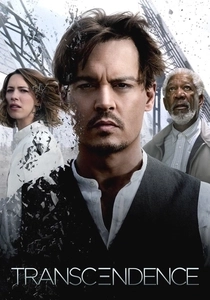
Transcendence (2014)
Description: A terminally ill scientist uploads his mind to a computer, leading to a debate about the ethics of digital immortality and the potential for AI to evolve beyond human control.
Fact: The film was Johnny Depp's first foray into science fiction, and it explores themes of singularity and the ethical implications of AI development.
 Watch Now
Watch Now 
